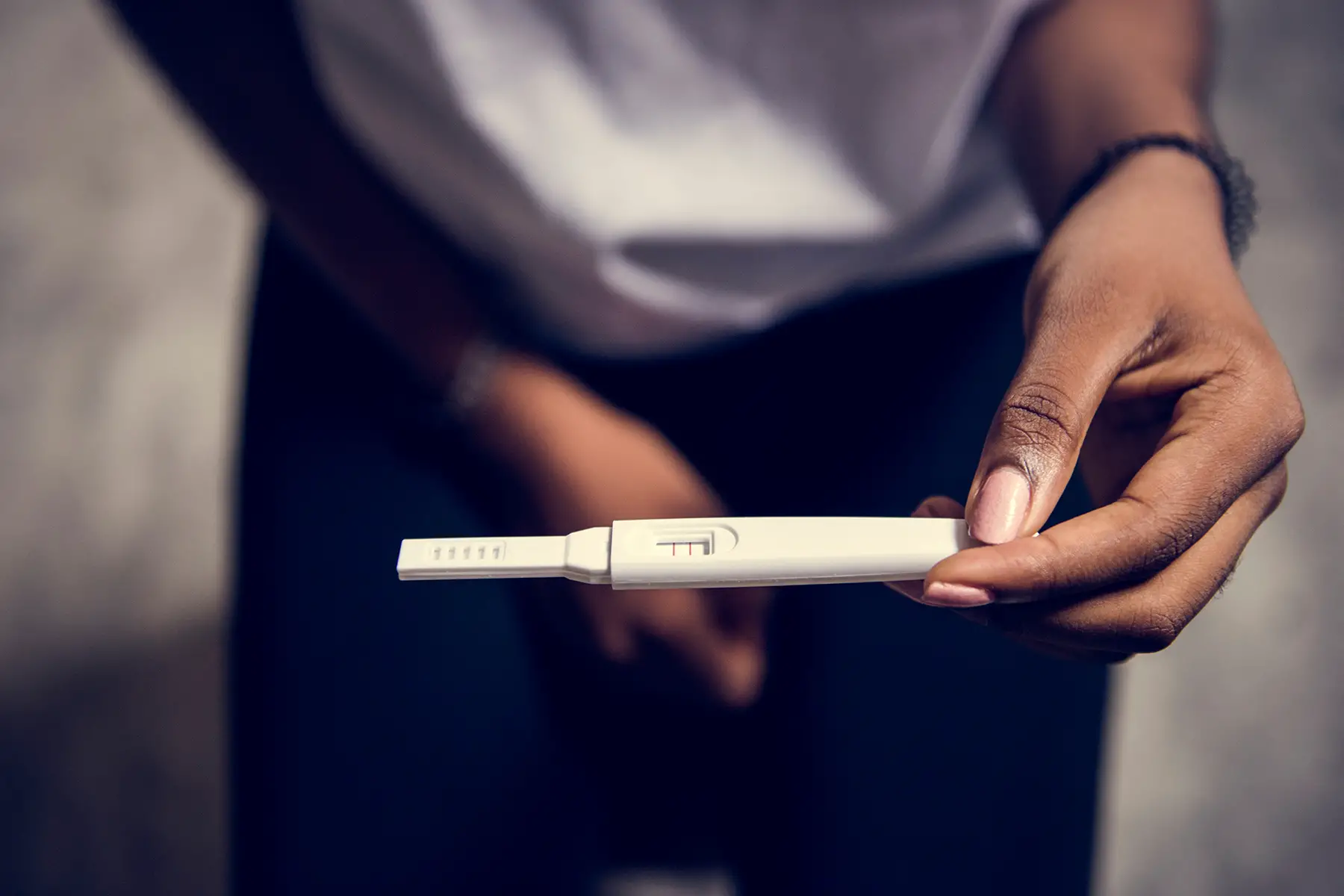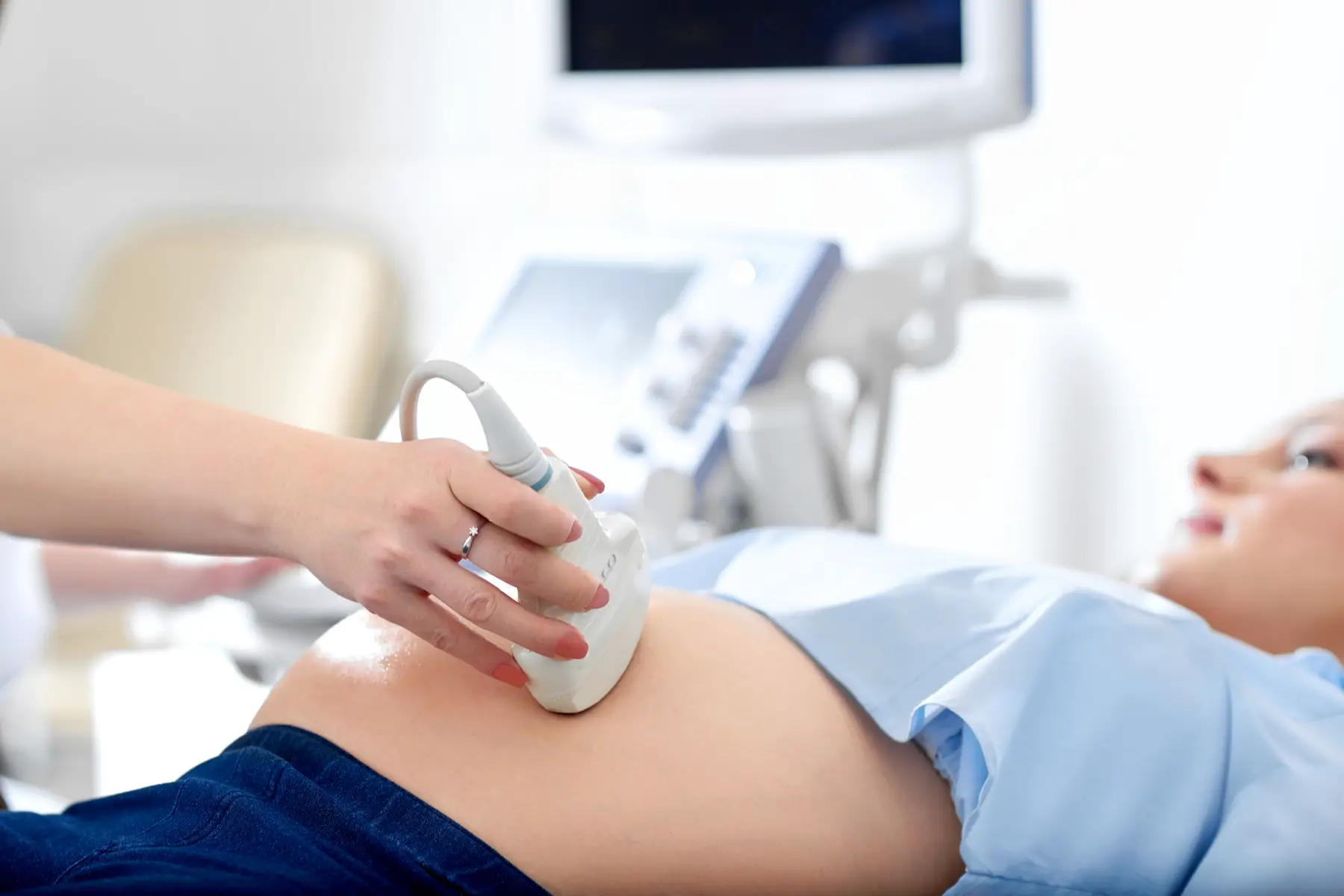From the early stages of your pregnancy and prenatal checks – including maternity health insurance – to childbirth, birth registration, and early childcare and parental leave, here is everything you need to know about having a baby in the United Arab Emirates:
- Pregnancy and giving birth in the UAE
- Accessing maternity services in the UAE
- Insurance for maternity costs in the UAE
- Pregnancy testing in the UAE
- Prenatal and antenatal care in the UAE
- Scans, tests, and checks
- Giving birth in the UAE
- Postnatal care in the UAE
- Vaccinations in the UAE
- Nurseries and childcare in the UAE
- Breastfeeding in the UAE
- Registering a birth in the UAE
- Will your child get UAE citizenship?
- Parental leave in the UAE
Orient Insurance
Orient Insurance provides a range of insurance products, including medical coverage, for internationals in the UAE. With over 40 years of experience in the country’s insurance market, they offer policies for your health, vehicle, home, and much more. When moving to the UAE, trust Orient Insurance to protect what matters.
Pregnancy and giving birth in the UAE
If you’re thinking of starting a family in the United Arab Emirates, the country has one of the most modern, healthcare infrastructures in the world. Many residents prefer looking outwards when it comes to critical care. However, for childbirth, the local market can be a preferred option. Much like the lavish spas and hotels in Dubai and Abu Dhabi, many of the private maternity facilities may have you believe you are checking into the lap of luxury.

A word of caution, though. However tolerant and liberal the UAE may be, Islamic laws govern the land. There are strict rules, the adherence to which is non-negotiable. So, first things first. You need to be married if you are having a baby in the United Arab Emirates; that’s not single, not divorced, only married. A marriage certificate is a prerequisite when you go for your first pregnancy test.
Healthcare across the Emirates
The UAE comprises seven emirates: Dubai, Abu Dhabi, Sharjah, Fujairah, Ras Al Khaimah, Umm Al Quwain, and Ajman. Maternity healthcare laws and services are applicable across the board.
Maternal healthcare is a robust industry with most big-ticket name institutions having specialty wings that deal with antenatal, childbirth, and post-natal facilities.
While childbirth amenities – both in the private and government sector – are extremely modern and progressive in the institutional sense, it is most likely that all attending gynecologists and obstetricians will be women; this ensures compliance with Islamic law.
Where and how to give birth
Keep in mind that childbirths must happen in hospitals, nursing homes, or clinics: there are no home births in the UAE. There is a thriving midwifery sector. However, midwives oversee birthing in hospitals.
Conventional methods are usually common (e.g., natural birth or C-sections). Although a few cases of water births (in hospitals) have been reported of late, these are extremely rare.
The UAE’s fertility rate (locals and expats) has dropped dramatically over the past few decades; from 6.6 births per woman in the early 1970s, to 5.4 in 1980, to 1.8 in 2015. With the goal to raise the birth rate, there are efforts afoot to make the maternity care sector as seamless as possible.
Accessing maternity services in the UAE
UAE doctors are all attached to a medical center – there’s no private practice. To access maternity services, you have to book an appointment with a hospital. Most hospitals in the UAE have a maternity wing.
Then, there are special facilities – more prevalent in the larger emirates of Dubai, Abu Dhabi, and Sharjah – like Latifa Hospital and Medcare Women and Children Hospital, which specialize in maternity care and pediatrics. You can find the names and details of all hospitals and nursing homes online and secure appointments by visiting the website or calling the helpline. Again, in keeping with the cultural context, the attending ob-gyn will most likely be a lady.
Finding a gynecologist and hospital
Websites will usually list the gynecologists/obstetricians on the rolls (or visiting) since the UAE is a multi-cultural country. They will show details like credentials, which country a particular doctor hails from, what languages she speaks (English is a must), and so on. All customer care staff speak English and Arabic. You’ll be given the option to choose English from the menu when you call the helpline or request a call-back on the website.
Once you choose a hospital and doctor, book an appointment. They’ll ask for details pertaining to your medical insurance. When you open a file in your name, you will need the following documents:
- Valid health insurance card
- Marriage certificate (original and copy)
- Both future parents’ passports (original and copies)
- Original and copies of residency visas of both future parents
Insurance for maternity costs in the UAE
Giving birth (prenatal services plus childbirth) in the UAE is costly, and will set you back anything between AED22,000 to AED30,000 in a private clinic. Government hospitals are cheaper; however, it’s no walk in the park either – costing upwards of AED7,000.
Obviously, having a proper health insurance card is a must. It is now mandatory that every resident employee has company insurance. If the expectant mom is not working herself, then the husband must have her added as a dependent in a plan that includes maternity benefits.
Make sure to check, double-check, and triple-check your medical insurance coverage. You can always extend your coverage to include bigger maternity plans. Also, remember that many insurance companies require you to be insured for at least six months before you can avail of maternity benefits, so timing will be of the essence.
While locals get full public health benefits from the government, all expats must map out a plan that suits them best. For more information and to get the right cover for you, check out the following international healthcare insurers operating in the UAE:
Pregnancy testing in the UAE
If you suspect you are pregnant, there are easy-to-use pregnancy kits available at all pharmacies; and don’t worry, your privacy is ensured. You won’t even be asked whether you are married or not! Prices for these kits start at around Dh40. Insurance doesn’t cover these kits.

If the test is positive – or you believe you may be pregnant – book yourself an appointment with a gynecologist for your routine blood and urine tests. But do remember, you need to be married in case you are looking for an official confirmation at a healthcare center.
Prenatal and antenatal care in the UAE
Prenatal and antenatal services are usually covered in the maternity packages at hospitals, and in the UAE comprises of consultations and tests. Many times, a few preparatory classes are also thrown in as part of the package. These guide you on labor stages, the birthing process, coping strategies and pain management, how your partner can play an effective role during childbirth. There is also information imparted on postnatal care, how to keep your baby safe, how to administer CPR, breastfeeding, and support groups.
If you want to attend extra classes, you can enroll at a number of specially-designed sessions – but these will cost you and may not be covered by insurance. Experienced midwives and life support instructors give the classes. Some of the most popular classes include Babies and Beyond and Healthbay Polyclinic, among others. Prices start from approximately AED1,800 per couple. Classes are in both English and Arabic.
Scans, tests, and checks
One of the largest medical facilities in Dubai, Al Zahra Hospital, lists out of the scans and checks required from an expectant mother in its basic maternity package.

These can be a guideline on what to expect, give or take a few variations:
- Out-patient consultations with an obstetrician (up to a maximum of 12 visits)
- Blood tests:
- Full blood count (at 12 and 36 weeks)
- Hemoglobin (at 28 weeks)
- Blood grouping
- Antibody Screening (at 12 and 28 weeks)
- VDRL
- HIV 1/11 Abs
- HbsAg
- Rubella IgG
- Random Blood Glucose
- Urine examination for microscopy, culture, and sensitivity
- Cardiotocography (CTG) (around 37–40 weeks)
- HVS (High Vaginal Swab) (at 37 weeks)
- GTT (Glucose Tolerance Test) (between 20–28 weeks)
- Ultrasound Screening (clinic) (at 28 weeks and between 34–36 weeks)
- Anomaly Scan (at 20 weeks)
- Preparation of Labor with Midwife (at 34 weeks)
The patient will usually receive the results of scans and checks by e-mail within 24 to 48 hours. If there is a discrepancy, the doctor will call them to arrange an appointment.
Giving birth in the UAE
Giving birth in the UAE has to happen in a hospital or clinic. Given that the rate of C-section deliveries has gone up exponentially, women are encouraged to have natural births. Despite the fact that C-sections are only recommended if there are complications, a lot of women opt for them.
Depending on what the doctor has said about your due date – whether you are opting for a natural birth or even a C-section – you need to check-in at least 24 hours before and get comfortable. The booking should be done the moment your attending doctor gives you the green light. Since all doctors are attached to hospitals, you will be admitted through their recommendation, and they will lead the team in the labor room.
Documentation to bring to the hospital
In order to secure admission, the parents have to produce the following:
- Mother’s and father’s Emirates IDs and passports
- Health insurance card or full advance payment (if you are paying in cash)
- Parents’ marriage certificate attested by the Ministry of Foreign Affairs
Many of the private clinics allow the father to be in the labor room, and even spend the night – but make sure to check on these details before opting for a doctor/hospital.
If you have a natural birth, there are pain relief medicines and epidurals you can obtain. And once your bundle of joy has made an appearance, you can expect to go home within the next 48 hours.
During the difficult process of childbirth, there are also doula services available in the UAE. In Greek, doula means caregiver. These exceptional women mother the mother during birthing. They can be hired from agencies such as Belly Baby Mom (bellybabymom.com) and Dubai Doulas (dubaidoulas.com).
Postnatal care in the UAE
Until some time ago, postnatal care was in a nascent stage in the UAE, and even now, it’s not up to the standards in the West. Thankfully, government intervention has opened the floodgates to a range of services in the domain. There is the La Leche League UAE which offers breastfeeding support, alongside a host of other lactation consultants, which mostly operate free of cost. Furthermore, Health Bay Clinic provides postnatal services for both babies and mums (checks, massages, and so on). You can get home visits from many hospital midwives or hire postnatal doulas.

The mother visits her attending doctor after six weeks for a follow-up checkup, but she needs to be aware of any changes to her body so that she can consult a doctor if need be. The baby must go for checks every other week. This can be part of your insurance cover as a postnatal plan (valid until eight weeks after childbirth).
Mothers looking to get back to a fitness routine can enroll on websites such as FittaMamma and choose classes that best suit them.
Vaccinations in the UAE
The UAE government guidelines on vaccinations are time-bound. Since the risk of tuberculosis (TB) is perceived to be higher in this part of the world, your baby needs to get a BCG vaccine soon after birth, alongside the first dose of HBV – the Hepatitis B vaccine.
At two months, the baby gets a second dose of HBV, along with a host of other first-dose vaccines: polio (IPV/OPV), diphtheria, pertussis (whooping cough), tetanus (Dtap), Haemophilus influenza (Hib), and pneumococcal conjugate (PCV). Subsequently, there will be more to follow at four months, then six months, and so on; a timetable that you need to follow up with your healthcare provider.
Your insurance plan may or may not cover vaccinations – so keep that in mind when you choose your coverage plan. If you are a resident of the UAE, you can get free vaccinations for your child until they turn five at government hospitals/clinics. But these free jabs are only the government listed ones. You must open a file for your child and go to a clinic close to your place of residence. To open the file, parents need to carry their official documents, and a copy of their utility bills along with their baby’s passport, visa, birth certificate, and Emirates ID.
Nurseries and childcare in the UAE
Childcare facilities in the United Arab Emirates are usually for slightly older children – above 18 months; however, there are plenty of nanny services, who charge by the hour. It is expensive to hire licensed nannies, so often, expats who need full-time nannies hire them from abroad: either their home country or from countries like the Philippines, India, or Sri Lanka. These nannies are on the employers’ visas and have to be paid minimum wages as specified by the UAE government.
Breastfeeding in the UAE
In 2014, the government passed a law that made breastfeeding compulsory for the first 18 months; in 2018, they banned all formula milk promotions, as a further endorsement to the UAE’s official breastfeeding policy. Basically, breastfeeding is being encouraged hugely, even in public, and there is a lot of noise to propagate it with media campaigns and government initiatives. Having said that, you need to be discreet while feeding your child in public by covering yourself with protective gear such as a scarf or a stole.

Most malls and public spaces have designated feeding rooms or enclosures for those seeking privacy; at cafes and restaurants, you can ask for a secluded corner if you wish – rest assured, the others will have no objection since the matter is of utmost importance to the government.
Registering a birth in the UAE
After your baby is born, you have a maximum of 30 days to register his/her birth. To obtain a birth certificate – which is needed to register a birth – the following documents have to be submitted, either to the hospital/clinic where the child is born (if it’s a government one) or the concerned health authority (if it’s a private one) in the emirate of your residence:
- An attested Arabic translated marriage certificate (if the original is in a different language);
- Original and copy of husband’s and wife’s passport and residence visa;
- Birth notification (issued by the hospital)
After obtaining a birth certificate, the Ministry of Health of Prevention and Ministry of Foreign Affairs and International Cooperation must attest it.
Arranging identification for the baby
Parents have 120 days (from the day of birth) to get a passport (from the concerned embassy), a residence visa (from the General Directorate of Residence and Foreign Affairs in concerned emirates), and an Emirates ID for their baby; there are centers all over the UAE, so you can choose one that is most convenient. If the visa is not procured within that timeline, a per-day fee of AED100 will be levied for each day after that, and the baby will not be permitted to exit the country.
If you are willing to pay around AED2,000, there are agencies such as Baby Steps Dubai that will take care of everything for you.
The father’s surname goes on all official paperwork. If the parents are different nationalities, the baby receives the father’s nationality.
Will your child get UAE citizenship?
Short answer: no. Children of foreigners cannot get local citizenship and will receive the nationality of their parents. If the parents have a transnational marriage, the baby assumes the father’s nationality.
Parental leave in the UAE
Fully-paid maternity leave for government employees is more in the United Arab Emirates – at three months. There is no mandatory paternity leave, except for employees of the Abu Dhabi government; they get three days of paternity leave. Some employees voluntarily give three days off to a new father – however, this is not mandatory.

According to the UAE government portal, non-government employees are entitled to a “maternity leave of 45 days including the time before and after delivery. If the woman has completed one year of continuous employment for the same employer, she is entitled to full pay during maternity leave; otherwise, she is entitled to half-pay.”
Also, “after delivery, the woman is entitled to two additional breaks each day; with each break not exceeding half an hour for nursing her child. The woman is entitled to such breaks for 18 months following the date of delivery and is entitled to full pay.”
If there is a real need – ensuing a complication – to prolong your leave, then you can have up to 100 successive days of non-paid leave.



